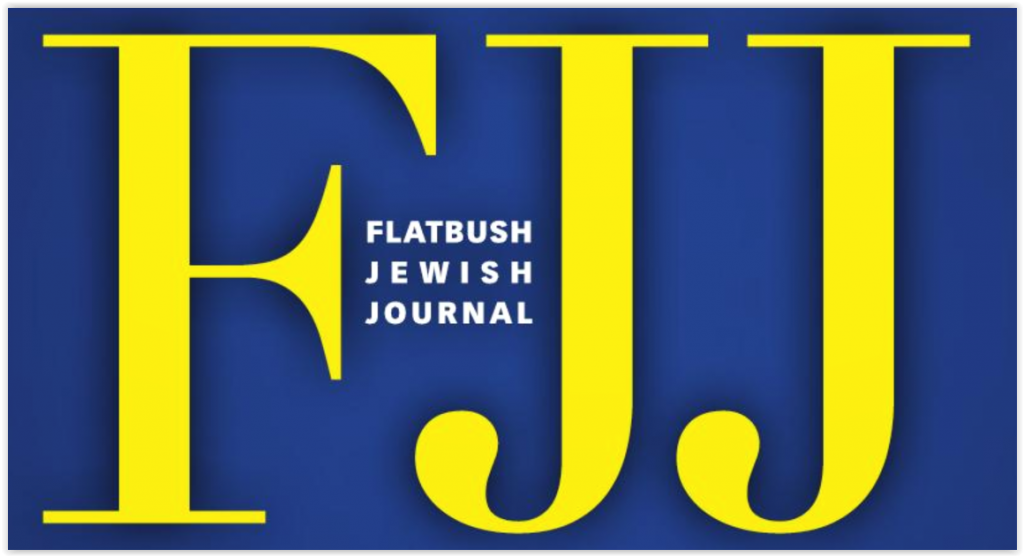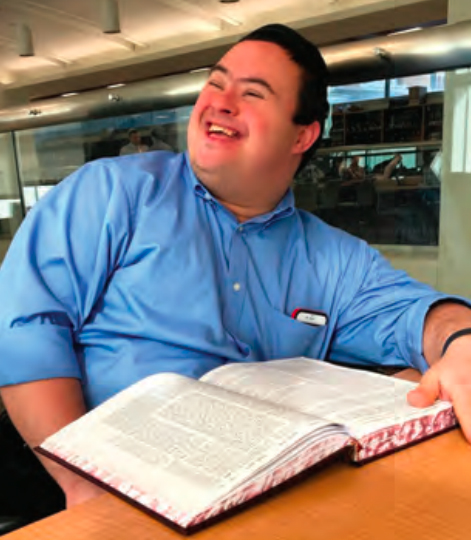
ON THE FIRST YAHRZEIT OF
SAADYA YEHOSHUA EHRENPREIS Z”L
“HEY, IT’S GOING TO BE OKAY”
Originally featured in
The Flatbush Jewish Journal
April 15, 2021 page 96
I closed my Google document, which began, “Letter to the Editor, Dear Mishpacha, mishpacha,” and ended, “B’ahava, Ahava” It was, I assumed, my final piece about Saadya Ehrenpreis to Mishpacha Magazine. A long and happy relationship, certainly bringing infinite joy to the subject of the many articles and, I hoped, providing more than mere reading satisfaction to the readers.
Then, the letters started arriving, either directly into my inbox or forwarded through administration@mishpacha.com, WhatsApp, texting, phone calls…. “You don’t know me but I know your son through your writing and I share your loss as if it were my own.” Someone forwarded a shiur given by a speaker I do not know, nor had he ever met Saadya. Based on what the speaker had read through the years, he was giving his shiur on the Shabbos after Saadya’s petirah on Saadya’s positivity, suggesting everyone consider his or her own personal attitudes toward others and suggesting a campaign, “Smile for Saadya,” as a true zechus for his neshamah. A letter from a neighbor of long ago, relayed that Saadi was her first exposure to and had formed her attitudes toward special children. She recalled the lessons learned, being instructed, “If you see Saadya on his tricycle, on your side of the block, gently return him to his (either frantic or oblivious) parents.” (No gates were ever high enough or locks strong enough to deter Saadya from his need for independence. A trait that served him far better as an adult than as a five-year-old!)
Then came a letter that took my breath away. He wrote, “I never met your son except for reading about him in Family First. I have an 11-year-old brother with Down Syndrome. I wanted a brother like the other guys have, to ride to yeshivah with me, or to take to Motza’ei Shabbos learning. I was really kind of angry at Hashem. Then I read about all the things Saadya did and how he changed and impacted people. I saw my brother in a new way, he knew all the Jewish singers better than other guys’ brothers, and I saw there were lots of things we could do together. I saw that even if he looks different, there are so many ways we are alike. He plays great basketball and really loves people, no matter who they are. That’s how your son Saadya changed me. Your son really changed a lot of people, I think, and he will always be remembered. HaMakom Yenachem etchem betoch shaar avlai Tzion v’Yerushalayim, Dovid.”
Thank you, Dovid! I hope you are reading this article. You see, you gave me a real gift. There is no such thing as “closure” for the wound of losing someone we love (especially a child, I think). That is an oxymoron; you can’t “close” an open wound that can never heal. But I realized that what you can get or hope to acquire, is “clarity.” A possible answer to the nagging, unspoken question of why is this the plan?
During the shivah a nephew told me about a gadol in the Torah world who had suffered the personal loss of a child. When someone asked, “The Rosh Yeshivah has no kashas (questions)?” the gadol replied, “Kashas? I have kashas, but I am not ready to do what’s necessary to get the tirutzim’ (answers)” So no answers are given to us, but Dovid, you gave me some understanding of why this journey had to take the form it did.
At Saadya ‘s birth 36 years ago, the world-class experts assured us that he would never be capable of independent life, with “institutionalization” probably the best long-term life plan for him. But he defied their dire predictions! He lived an incredibly meaningful and joyful life, both for himself and for others. He even helped one young man named Dovid to grow to appreciate and love his brother, so that two more lives took a different course. If you save a life, you save a world.
Saadya, in his quest for a full and joyful life, saved a world. Clarity has come in many forms during this truly surreal period, surreal for all of us. Saadya, the Purim before Covid, healthy and robust, delivered my homemade challos to everyone on the block. “All right, Mom, if that’s what you want.” From that happy day to, well, a levayah, watched by thousands, to a shivah in which everyone who loved him “sat” alone, quite literally, and now … the reality of his absence in this world.

Why was there such a degree of mourning, of loss, of admiration? He was, in fact, a lovely young man with special needs. Tributes abound, personal and public, from people who had known him years ago, “I always missed him when he didn’t come to activities.” “It’s been over two decades, but I still think of him and it gives me koach to deal with life’s challanges.”
“I always felt that the world was a better place with someone like Saadya in it.”
Why the final eulogies, hespedim proper, perhaps, for a major gadol b’Yisrael? After great thought (sleepless nights providing ample time for contemplation), I have come to some relative level of clarity. Saadya was not born with a “glow of greatness”; as a matter of fact, the predictions were pretty dismal, at best. He didn’t know Shas before he was fourteen. He wasn’t even verbal when he entered school at five, due to a chronic hearing issue that finally was correctly addressed. He was not the prize student of a great talmid chacham who recognized that he would be a leader in Klal Yisrael. But he moved mountains with his determination, his truly selfless motivation to make people happy, to make “everything okay” for anyone and everyone. And even more powerful, his every aliyah to the Torah, his time in Israel, a siyum, yes, even his venturing into the depths of the New York subway system, all translate to a message; a proof positive that everyone can break the barrier of their supposed “limitations.”
During a Zoom family shivah visit, my nephew apologized for closing, as he needed the Zoom platform to give a shiur for our kiruv program, Lev Akiva Shamai. But he added that the shiur would be on “chesed b’dibbur,” using speech as a form of chesed that Saadya so perfectly exemplified. Everyone who contacted us, whether in the public eulogies or privately, made reference to Saadi always saying something to make someone feel better or to decrease tension between people, telling a joke to enliven the mesibah, or about his enthusiasm when “speaking in learning” with his Rebbe.
“Do you realize the irony of that statement?” I commented. Speech was Saadya’s only true “disability,” All the speech therapy in the world could not offset the physical aberration that resulted in a fairly significant speech impediment. Yet, absolutely no one has ever mentioned it as a negative factor in all the thousands of comments and communications. It’s as if it really didn’t exist and you know, I realize now, for Saadya, it really didn’t. Yes, he knew he had to repeat things sometimes; he would even spell out a word on occasion. He practiced Kiddush and the words of the aliyah because he knew he had to have perfect pronunciation or say it slowly to get it just right as a berachah. But it was irrelevant to his being one of the guys, in our house, in yeshiva, in camp.
He kept his eye on the same goals as his siblings: yeshivah, basketball, driving a car (when can I take driving lessons?), as a little boy taking the subway by himself to see his father run in the New York City Marathon! (Kudos to the NYPD for responding to that adventure, learning in Israel, Yeshiva University, flying by himself. Maybe he had to speak more slowly, maybe he had to run a little harder, but the goal was “I’m going to do it all, I am going to learn Torah, be part of my shul, have an aliyah on my father’s yahrzeit, “lead” Simchas Torah hakofos, be part of the Beis Hamedrsh, a kumzitz, sing and dance and do cartwheels at every simchah, make sure that no one I know is upset or feeling sad and fill the world with simchah.”
Yes, three weeks after his petirah would have been his 36th birthday, 28th of Iyar, his “bris day” (Shavuos), the anniversary of his bar mitzvah (June 4, 1997). Each day required a celebration. and why each would not have a different ice cream cake was never really fathomable to him. But maybe he was right; each of his birthdays had a minimum of three events, so he did have a full measure of a long lifetime of birthday celebrations.
One of the very outstanding professionals who worked with Saadya told me that they were attempting to introduce the concept of “is it true or relevant?” (e.g., his intention to make a CD, developing a working relationship with any one of a number of musical greats in the Jewish world, or a prolonged stay in Israel). But maybe, just maybe, he always had one foot in the world where everything is true and relevant and we were the ones who just didn’t know it. And now he is in a world where everything is true and relevant. And, I think that I am happy for him. At least, I’m working on it. Maybe many people are working on it with me.
Yehi zichro baruch,
(This article will be included in the forthcoming book, More Than Special, by Ahava Ehrenpreis to be published shortly by Mesorah Publications, Ltd.)